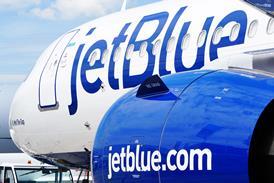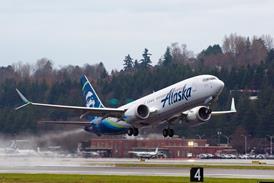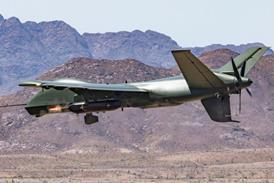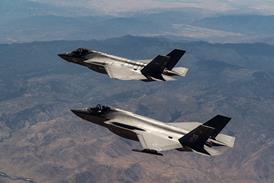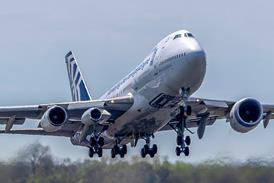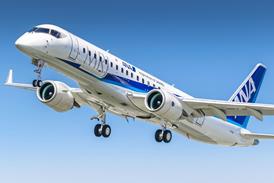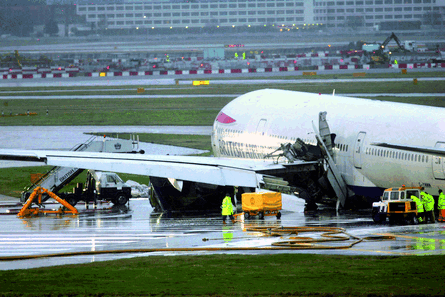Rolls-Royce is stressing that its anti-icing modification for the Trent 800 is just one part of a broader course of action required for the emerging issue of ice accumulation during long, cold, high-altitude cruise.
The manufacturer is redesigning the fuel-oil heat exchanger for the powerplant, in the wake of the British Airways Boeing 777 thrust roll-back accident in January last year, and a similar single-engine roll-back on a Delta Air Lines 777 in November.
Investigators believe that the roll-backs were caused by ice building up in the fuel lines and being flushed downstream to the heat exchanger, blocking it and restricting fuel flow to the engines.
While the UK's Air Accidents Investigation Branch and the US National Transportation Safety Board have each recommended that the exchanger be redesigned, Rolls-Royce points out that ice build-up is a complex process that concerns the flight profile, fuel delivery, and the whole fuel system - not just the engines.
"The AAIB report clearly emphasises that the Rolls-Royce equipment on this flight met or exceeded all requirements," it says, adding that ice accumulation is an "emerging" problem.
"This is an industry-wide issue which requires detailed research that is likely to shape future regulations and requirements."
While the Rolls-Royce modification to the heat exchanger has yet to undergo certification, Air Transport Intelligence understands that it involves a relatively simple change to install a plate at the inlet which is more flush than the current design, enabling soft ice to disperse more easily.
Sources familiar with the work, which has included months of collaborative effort and tests, indicate that the modification is "straightforward" and should not prove difficult to implement.
|
|
|---|
Although the AAIB has been leading the research effort, sharing findings with US counterparts, the NTSB is already recommending that the modification be installed within six months of certification. The AAIB, which says the inquiry is still continuing, has not made any similar recommendation but has asked regulators to consider mandating any design changes introduced.
Certification and initial installations of the modified heat exchanger are expected to take place within a few months.
The AAIB, in an update to the BA 777 inquiry today, states: "The investigation has established that the risk from fuel system icing is complex and is dependent on a number of interactions are not fully understood."
In a parallel recommendation it is advising that US and European authorities conduct joint research into ice formation in fuel, as well as release mechanisms for accumulated ice in aircraft fuel systems.
Source: Air Transport Intelligence news

